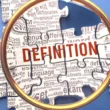The United States Constitution delineates the powers of the federal and state governments, particularly in the context of elections. President Donald Trump has been vocally pushing for a federal takeover of election administration, presenting a narrative that challenges the constitutionally mandated decentralized election system. This discourse comes amid an era where election officials have significantly fortified election security and integrity following extensive investments at both federal and state levels.
Despite the robustness of the US election infrastructure, Trump has made baseless claims suggesting that it requires substantial federal oversight and intervention. This stance has been echoed in a March executive order and his extensive commentary on social media, asserting that the states merely act as agents of the federal government in conducting elections.
Experts in election law have rapidly countered Trump’s assertions, clarifying that Article One of the Constitution expressly grants states the authority to manage elections. Lawrence Norden, from the Brennan Center, emphasized the inaccuracy of Trump’s interpretation, explaining that the president does not possess the legal authority to dictate electoral processes such as mail-in voting or the usage of voting machines.
The administration’s rhetoric is seen as an attempt to undermine public trust in the electoral process while wielding the influence of the presidency to intimidate and mislead. Pamela Smith, president of Verified Voting, criticized the attempts to manipulate election integrity discussions, stating that it is inappropriate for the White House to direct independent bodies like the Election Assistance Commission on operational practices.
Adding to the complications, several officials within the Department of Homeland Security do not acknowledge Trump’s 2020 electoral defeat and have furthered conspiracy theories surrounding election integrity. Recently, there has been a significant reduction in federal government involvement in safeguarding election security.
Reactions to Trump’s recent comments have underscored the divide between Republican and Democratic officials, with some Republicans expressing support for his executive orders that push for stricter voting regulations, while Democrats have decried these moves as unconstitutional overreaches.
The Trump administration’s actions have raised significant concerns about the balance of power in elections, particularly with the designation of electoral processes as a critical infrastructure which historically caused contention among election officials. As these developments continue, experts warn that Trump’s rhetoric could erode essential state control and integrity of the voting systems across the nation.
In light of the extensive investments made in election security over the past decade, which ensure that the overwhelming majority of votes cast are verifiable through paper records, there is a pressing need to maintain the integrity and independence of state-run election processes amidst rising federal scrutiny.











